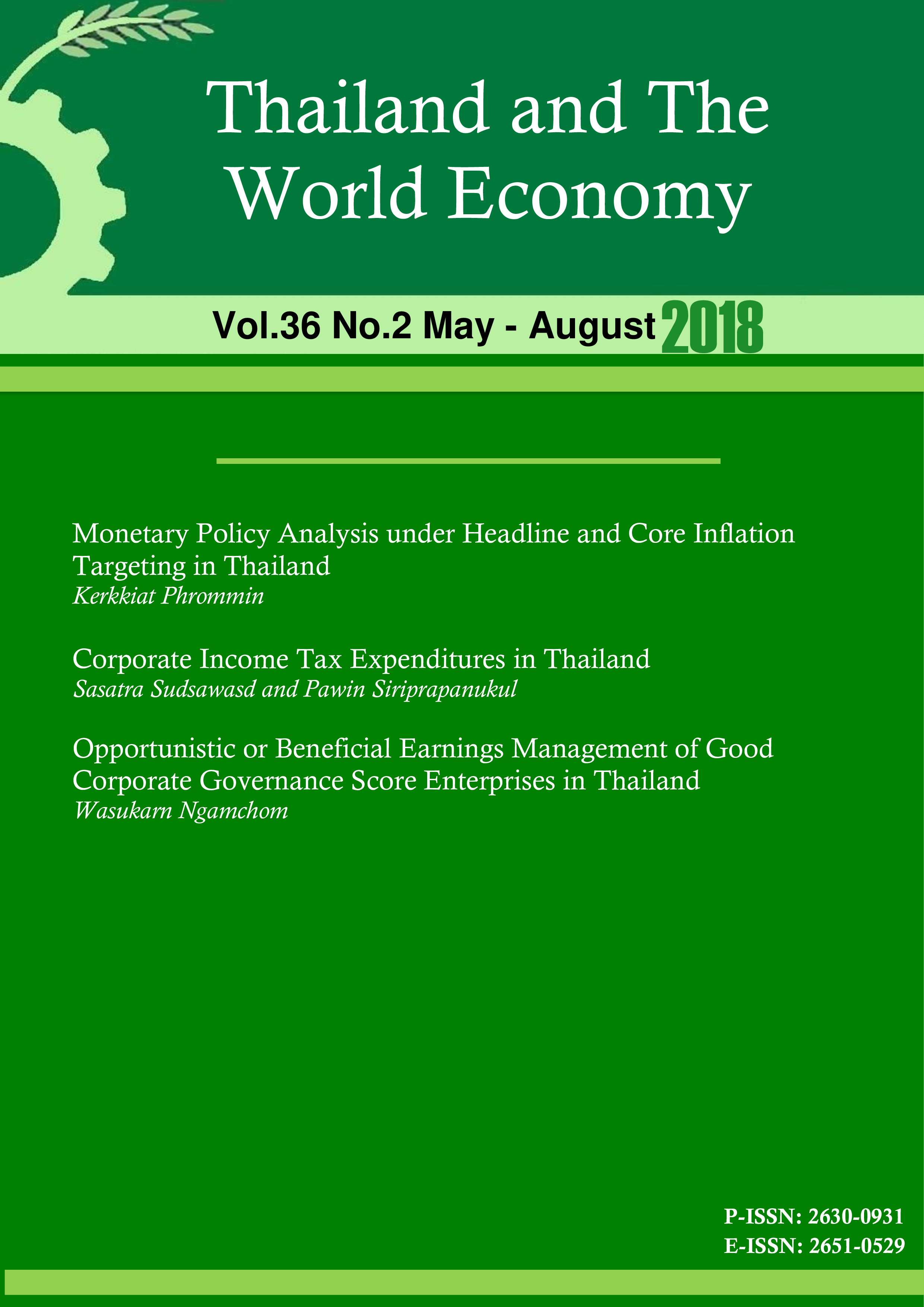Corporate Income Tax Expenditures in Thailand
Keywords:
Tax expenditures, Corporate income tax, TaxationAbstract
This study shows that the amount of corporate income tax expenditure measures has been increasing rapidly since 2011, especially those related to short-term economic stimulus measures. Additionally, the volume of corporate income tax expenditure has seen a substantial increase. In 2015, the corporate income tax expenditure estimates of Thai corporations listed on the Stock Exchange of Thailand (SET) and in the Market for Alternative Investment (MAI) were quite substantial at about 117,343 million Baht (55.40 percent of the estimated corporate income tax revenue without any tax expenditure.) Even when taking a temporary reduction of the statutory corporate income tax rate into account, the size of the estimated corporate income tax expenditure in Thailand is still considered large at about 49,483 million baht.
References
Anderson, B., (2008). PowerPoint presentation at the Asian Senior Budget Officials meeting, 10-11 January 2008, Bangkok, Thailand. Retrieved from https://www.oecd .org/dataoecd /40/6/39944419.pdf.
CBO. (2013). The distribution of major tax expenditures in the individual income tax system. Retrieved from https://www.cbo.gov/publication/43768.
Cole, A. (2015). Corporate and Individual Tax Expenditures, Tax Foundation Fiscal Fact No.476, Tax Foundation.
GAO. (2005). A glossary of terms used in the federal budget process (5th ed.). Retrieved from www.gao.gov/new.items/d05734sp.pdf.
Joint Committee on Taxation. (2014). Estimates of federal tax expenditures for fiscal years 2014-2018. Retrieved from https://www.jct.gov/publications.html?func= startdown &id=4663.
Khannapha, C., Paisuwan, W., & Sakpiboonchit, S. (2009). Report on impact of tax expenditures on the fiscal system of Thailand, The Secretariat of the Senate.
McBride, W. (2013). A brief history of tax expenditures, Fiscal Fact No.391, Tax Foundation.
Muthitacharoen, A. (2016). Assessing tax incentives for investment: A case study of Thailand, Southeast Asian Journal of Economics, 4(2),105-128.
Musgrave, R., & Musgrave, P. (1989). Public finance in theory and practice (5th ed., Mcgraw-hill international editions. finance series). New York: McGraw-Hill Book Company.
OECD. (2010). Tax expenditures in OECD countries, Paris: OECD Publishing.
Rochananonda, Chadin. (2006). Tax incentives and FDI in Thailand. Paper presented at the International Symposium on FDI and Corporate Taxation, Tokyo.
Tresch, R. (2015). Public finance: A normative theory (3rd ed.). Academic Press.
U.S. Department of the Treasury. (2015). Tax expenditure report for fiscal year 2017. Retrieved from www.treasury.gov/resource-center/tax-policy /Documents/ Tax-Expenditures-FY2017-11132015.pdf.
Whitehouse, Edward. (1999). The tax treatment of funded pensions, Social Protection Discussion Paper Series 1999, The World Bank,.







